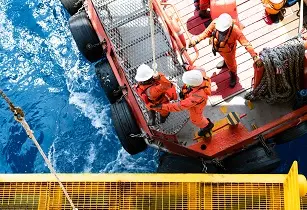In a climate of volatile prices and heightened geopolitical risk, oil and gas companies are asking more from drilling contractors as part of efforts to trim costs and boost overall productivity
Technology has helped to transform drilling operations and completions in Africa, and elsewhere, which has brought with it greater efficiencies, resulting it time and money savings.
It means drilling wells can be quicker and less expensive than in years past, while more is possible given access to new data and powerful computing.
An integral part of the oil and gas supply chain, well completions and production account for more than half of all revenues at industry services giants such as Halliburton.
Another industry heavyweight is Schlumberger (SLB), which is deploying the latest technology to extract greater value from mature oil regions, such as the Republic of Congo.
Here, a successful five-well, eight-stage acid stimulation campaign was performed for French operator Perenco deploying its OpenPath Reach and OpenPath Sequence technologies via the Greatship Ramya stimulation vessel.
The campaign, a mix of high-rate acid fracturing and matrix stimulation stages, represented the first implementation of this technology for Perenco worldwide.
The main drivers for selecting SLB as its partner for reviving mature offshore fields were operational efficiency and a record of successful well stimulations, with work completed ahead of schedule, and performance from initial flowback deemed “very promising”.
Increasingly, environmental considerations are also at play on top of traditional cost, safety and productivity metrics when drillers go to work.
This was a key determinant when TotalEnergies handed five years of well intervention and integrity work to Expro Group on its multi-well Tilenga project in Uganda.
A key component in Expro securing a contract worth over $30 million for slickline services was its ability to provide an innovative environmental solution in support of the operator’s carbon-reduction objectives.
The drilling services firm is providing environmentally sympathetic lower carbon solutions compared to current market alternatives for the project, which is situated in a sensitive location close to a national park.
The Tilenga project covers six fields, with over 400 wells planned across multiple pads.
Work began this year and will continue for five years, with Expro initially supporting drilling activity followed by production optimisation, integrity and well workover support.
Iain Farley, regional vice president for Europe and sub-Saharan Africa, highlighted “the specific needs of this project”, taking into account location sensitivities and the need to support the project’s overall environmental and social objectives.
TotalEnergies is among explorers opening up another frontier basin too, as drillers now aggressively target Namibia’s emerging offshore sector.
And there’s a huge amount of work to be done, with two drillships currently working away, and another consortium led by Shell similarly active with ambitious plans ahead following a spate of recent discoveries.
In February 2024, the International Association of Drilling Contractors (IADC) will be hosting its Drilling Africa summit in Windhoek, partly in recognition of the country’s rise to prominence.
One of the event’s scheduled presenters, Wamidh Al Hashmy of Beyond Energy Services & Technologies, will discuss the use of managed pressure drilling (MDP) techniques as a means to ward off surge pressure vulnerabilities.
Citing successful well examples offshore Ivory Coast, another emerging oil and gas province, the MPD approach to completion string design and run enabled the operator to successfully complete wells in unstable formations, bringing both costs and time savings.
The writer of the article is Martin Clark









